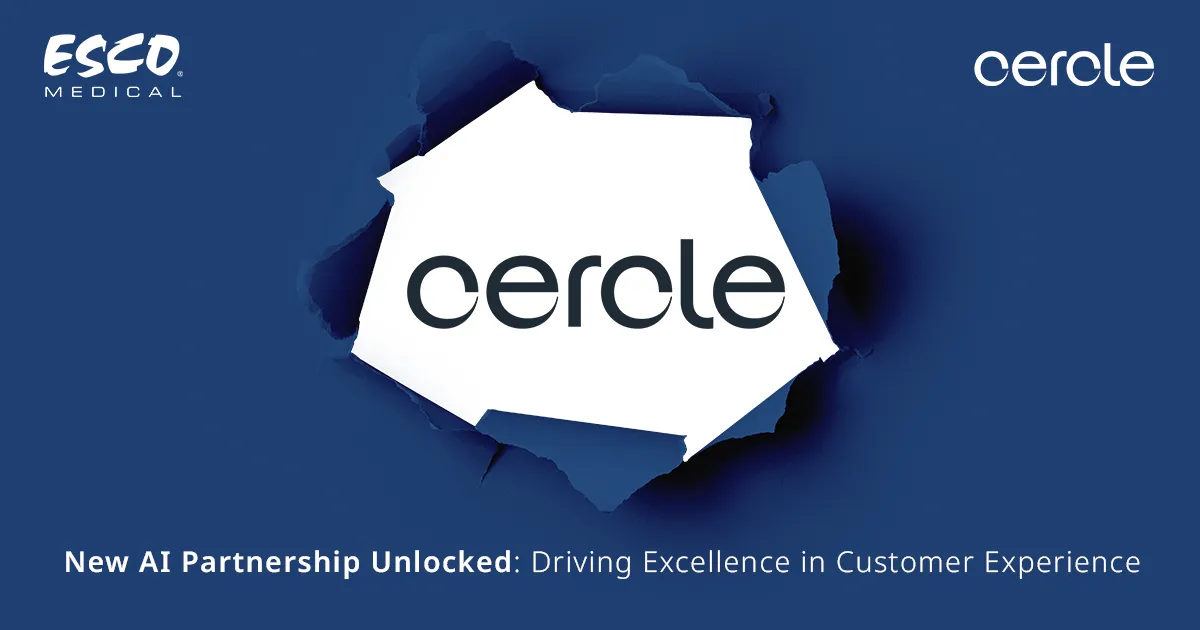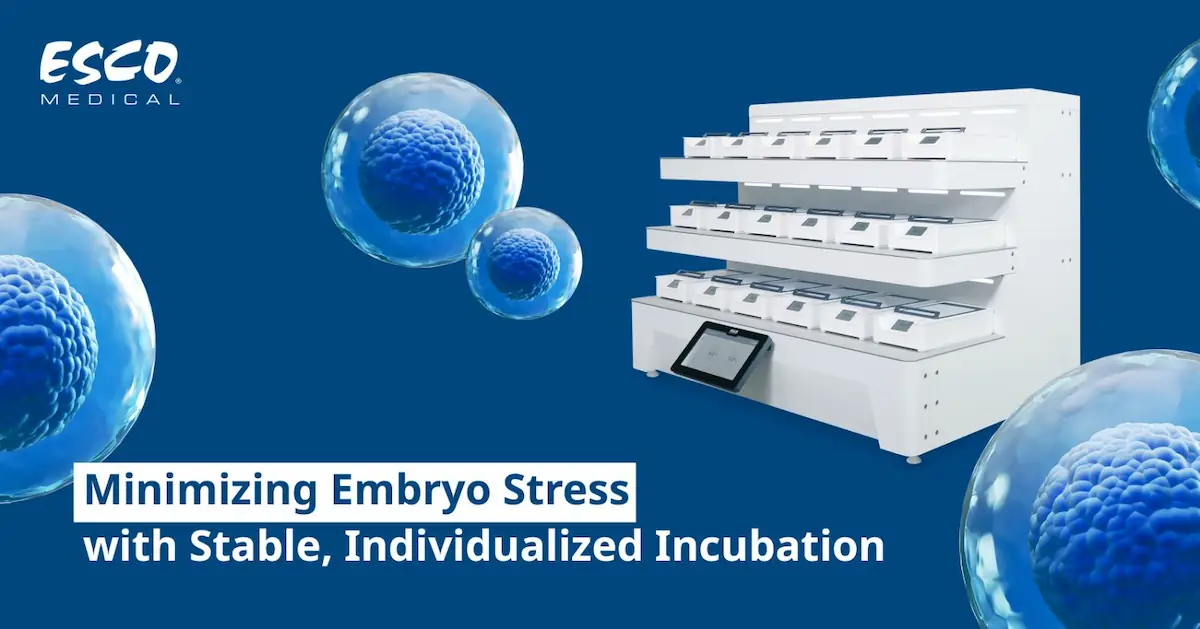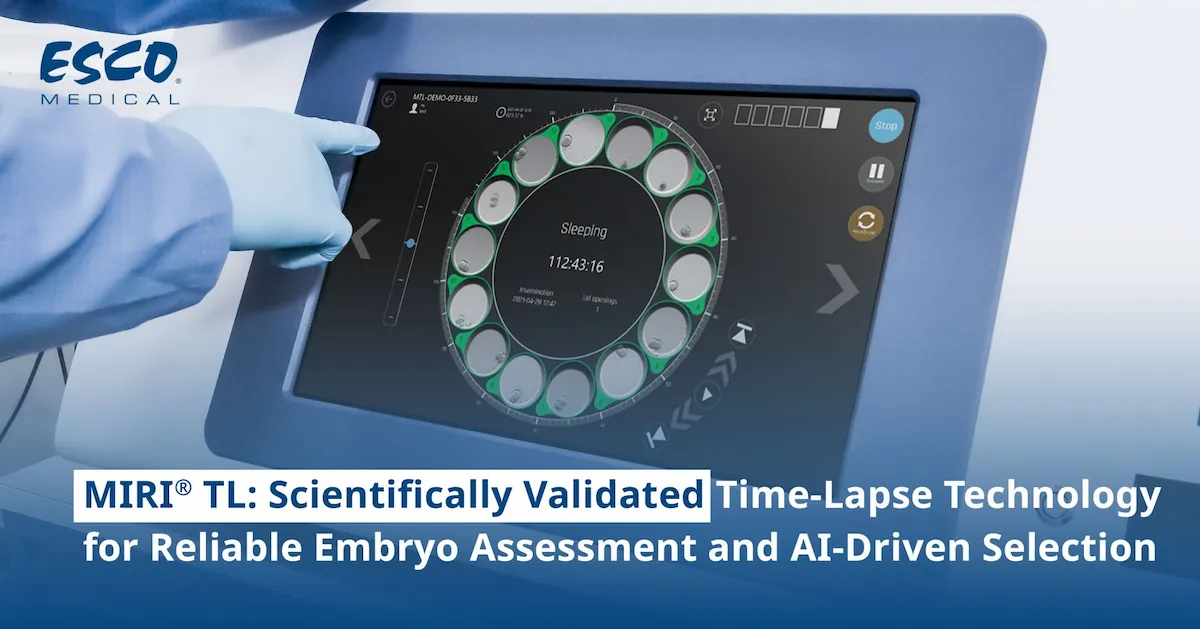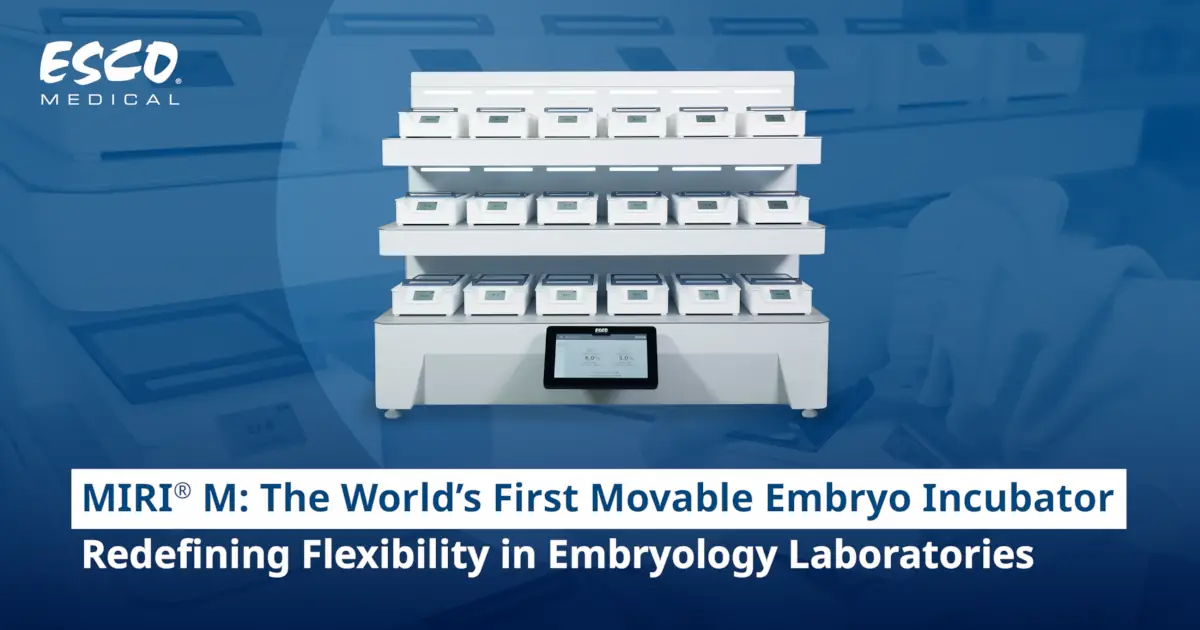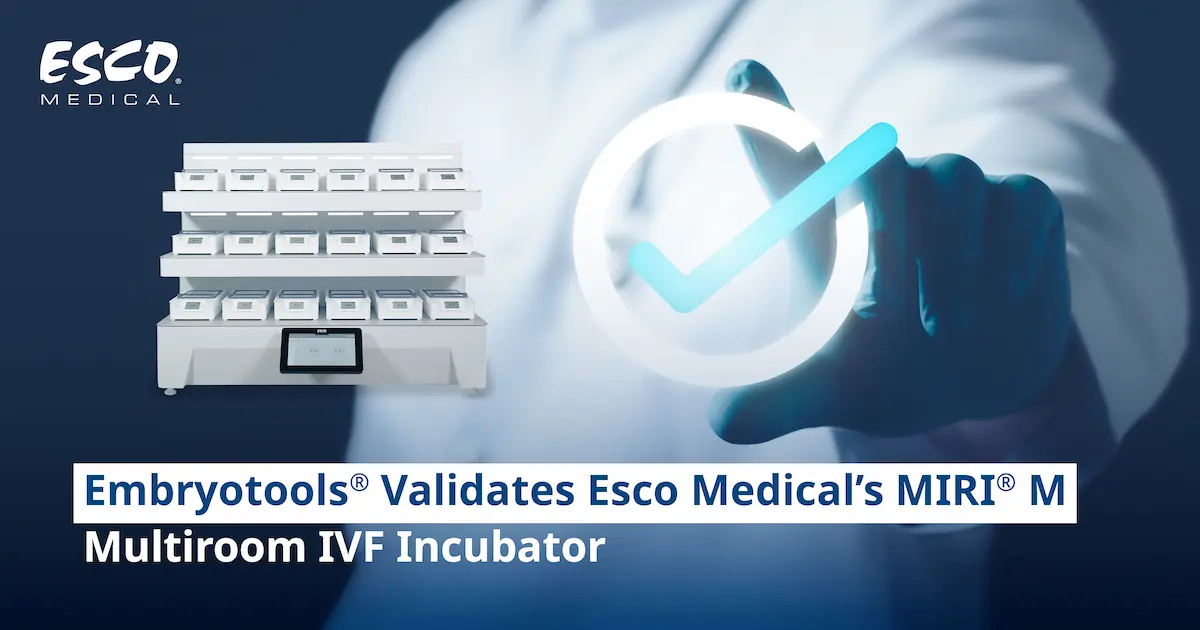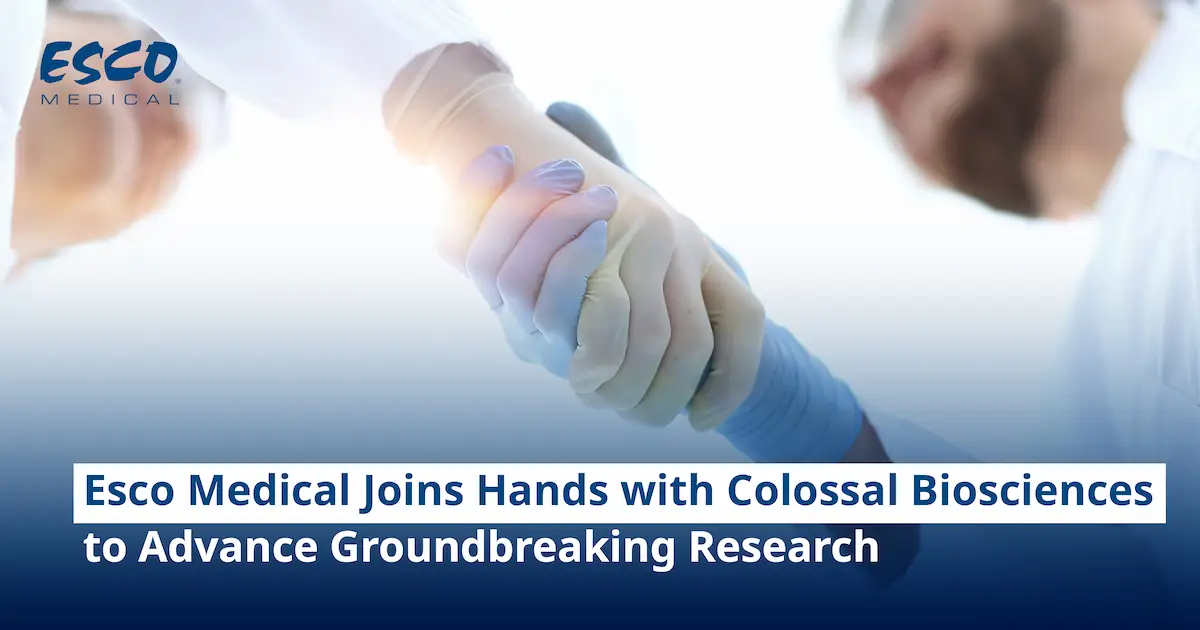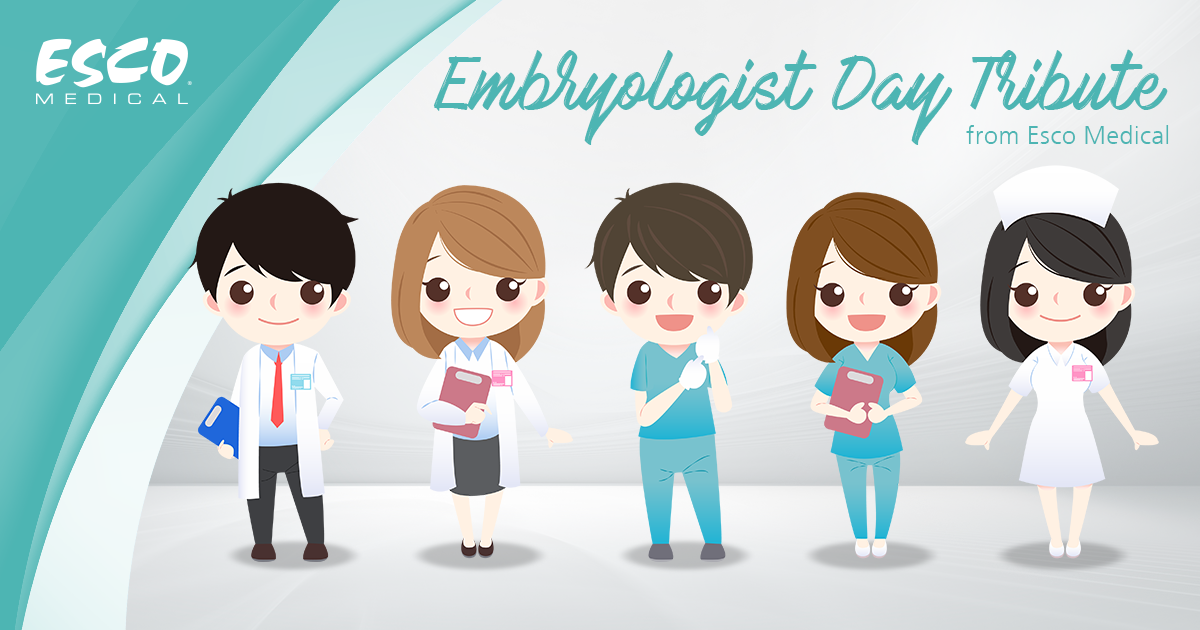
World Embryologists Day was created to celebrate the advances in the field of reproductive medicine and to recognize the IVF professionals and all other authorities in this field. The date, July 25th was chosen, because it is the birthday of the first IVF baby, Louise Joy Brown, who was born in the year 1978.
Esco Medical, a manufacturer and innovator of high-quality IVF equipment such as long-term embryo incubators, and ART workstations, is proud and happy to recognize the vital contributions of our IVF practitioners around the world; we managed to ask 2 embryologists who gamely answered our questions.
First we have Angelita T. Avila, a professional who has 14 years of experience in the IVF industry. She is currently the Chief Clinical Embryologist at Victory A.R.T Laboratory Philippines Inc. The other embryologist whom we got the chance to respond to our questions is Esco Medical’s very own application’s specialist, John Frederick Manalo. John had an almost 3 years practice as a Clinical Embryologist with Kato Repro Biotech Center.
What made you choose a career in embryology and what kind of education did you pursue to become an embryologist?
Avila: It was an opportunity that opened the doors and I tried to explore where it can lead me. I got interested in the field so to learn more about IVF I took Masters in Clinical Embryology.
Manalo: I have taken my B.S. in Agricultural Biotechnology at the University of the Philippines Los Banos where I specialized in Animal Biotechnology. The moment I graduated from college I have set my eyes on becoming an embryologist at KRBC as it is a kind of job that I found the most fulfilling to be in. Being able to help out people in such a way that only few others can do is something I found to be one of life’s greatest gifts.
What is a typical work day like for you as an embryologist?
Manalo: The typical work day for an embryologist is very organized, well-planned and very compact with tasks aligned for the day. It starts with Oocyte Retrieval procedures while others are doing sperm preparation for ICSI/IVF of the retrieved eggs after denuding or maturation assessment. Next will be doing ICSI/C-IVF or vitrification/ thawing of embryos depending on the task designation for you for that day. Latter part of the day is the transfer of cleavage embryos or blastocysts to patients which happens in the afternoon. Before and after procedure, we make sure that everything is sterile and clean as well as double-checking of everything before the laboratory closes. Every work day of an embryologist requires laser-focus and attention to detail so that every step you do is correct and will produce the best results for the patients as it is the ultimate goal for each and every day.
With these varying services expected of you inside an IVF, how do you learn each technique?
Avila: I learned each technique through the guidance of my seniors. And through years of experience, you can learn new things; try new approach that you think is beneficial to the patient. Attending seminars and workshops are very important to be updated.
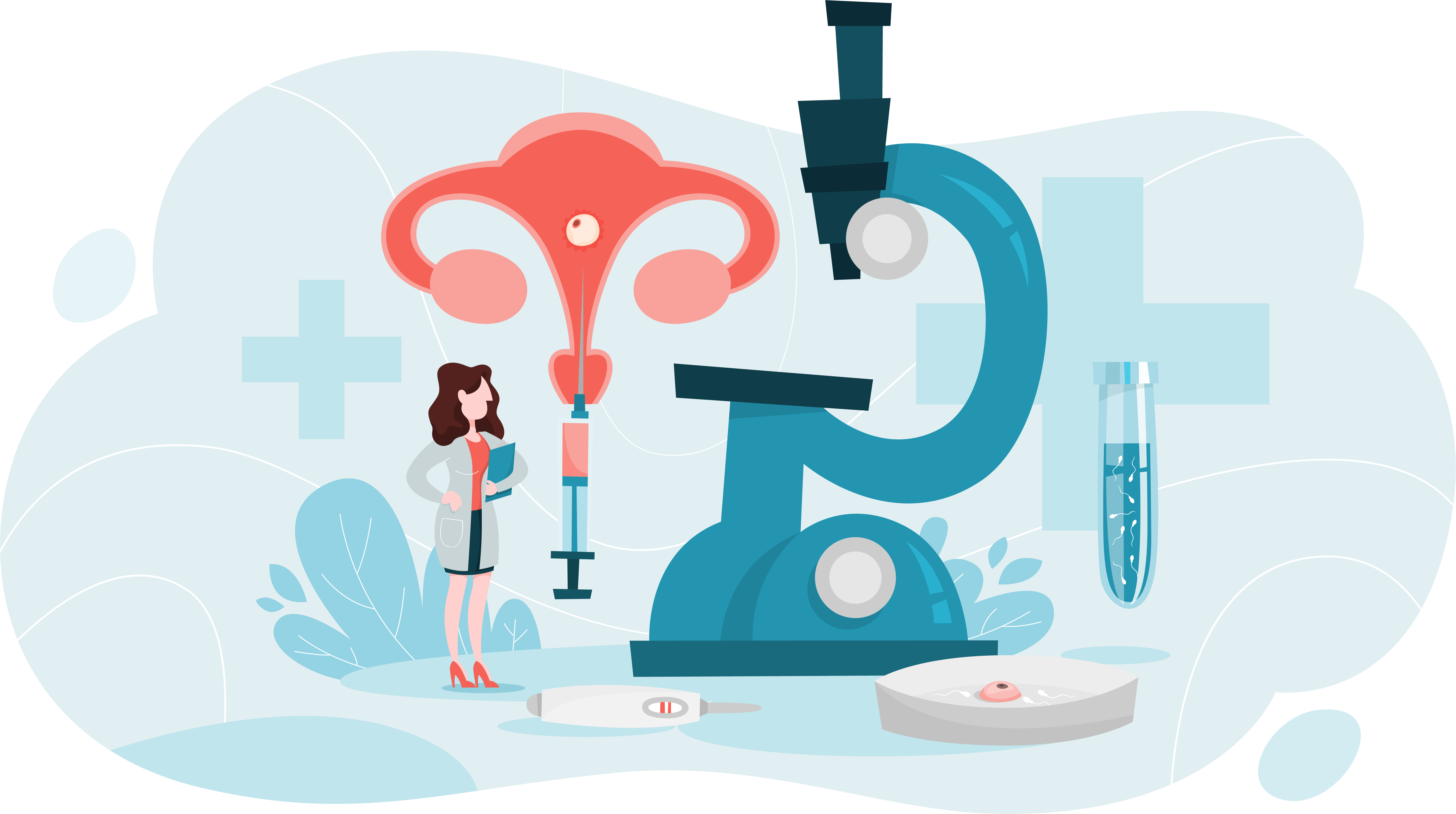
Based on your experience/s, do IVF clinics offer the same kind of training for their embryologists?
Avila: No. Not all clinics have the same kind of training to their embryologist. I was able to work in 4 different labs and each lab has differences in their protocol. We all learn the basics but to adapt on different environment of each lab, trainings are different in some ways.
Manalo: For my experience, I have only worked with KRBC as an embryologist but I believe every clinic has its own way of training their embryologist. But the bigger picture is still to hone the skills of each embryologist so that every egg/sperm/embryo will be handled with outmost care for the safety of the specimen of the patients.
As an IVF clinician, how do you reassure patients that their eggs, sperm, or embryos are safely stored?
Avila: We reassure patients by giving them an overview on how we store their eggs, sperm or embryos. We make sure that the staff is all well trained and we make sure we adhere to the policy and procedures of the lab.
Manalo: We assure our patients that their eggs, sperm, or embryos are safely stored by providing them with images before freezing of their eggs and embryos. We also provide detailed reports of all cryopreserved specimen including sperm samples. But most importantly we make sure that the staff doing the procedures are well-trained and are handling specimen with care.
Esco Medical would also like to seize this opportunity to pay tribute to our other embryologists who have painstakingly contributed to the growth and success of Esco Medical. Their expertise and skills have surely added laurels to our company’s accomplishments.
Diana W. Stein, serves as a consultant to Esco Medical and has been a speaker in almost all time-lapse workshops conducted by Esco Medical. Stein is presently the Laboratory Manager of the IVF Unit of Laniado Hospital, Netanya, Israel.
Ana Sousa Lopes is a dynamic and goal-focused professional with more than 15 years of medical, scientific and clinical experience within the pharmaceutical industry. Currently a business and clinical advisor at Esco Medical, Lopes is based in Lisbon, Portugal. She holds a degree in Veterinary Medicine and a PhD in Gynaecology & Obstetrics.
Last, but not the least, is Sanjay Bhojwani, currently Esco Medical’s Regional Sales Manager and clinical advisor & embryologist of ESCO Medical Germany, Austria, Switzerland. He holds a PhD in Veterinary Obstetrics and Gynaecology and has more than 15 years of medical, research and clinical experience in the field of clinical veterinary medicine, embryological research and medical industry.
Truly, Esco Medical’s professionals are world-class just like our line of IVF products. Happy World Embryologist Day, and thank you all to the “first babysitter’s” who have/ are tirelessly tilting down their heads, peeking through the microscopes, and taking care of couples and their babies’ future.
